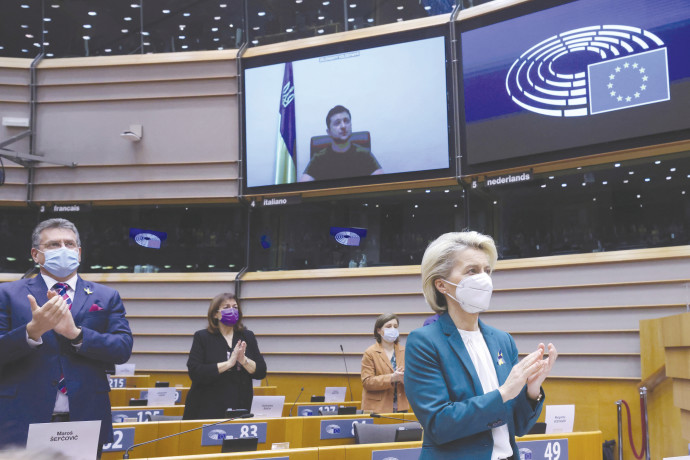The European Commission has proposed freezing the assets of Patriarch Kirill, head of the Russian Orthodox Church, a diplomat said on Wednesday.
The Patriarch has been added to a draft blacklist that already includes hundreds of military officers and businessmen close to the Kremlin whom the EU accuses of supporting the war in Ukraine.
New round of sanctions
The European Union will slap new sanctions on Russia for waging war against Ukraine, targeting Moscow's oil industry, more Russian banks and those responsible for disinformation, the EU's top diplomat said on Tuesday.
"We are working on the sixth package of sanctions which aims to de-SWIFT more banks, list disinformation actors and tackle oil imports," Josep Borrell, head of the foreign policy unit at the EU's executive European Commission, said in a tweet.
The latest round of sanctions would also affect Sberbank, Russia's top lender, diplomats said, adding it to several banks that have already been excluded from the SWIFT messaging system.

Borrell said the Commission's proposed measures against Russia, which attacked Ukraine by land, sea and air on Feb. 24, would be presented to the 27 EU member states for approval.
Officials said European Commission President Ursula von der Leyen is expected to spell out the proposed new sanctions on Wednesday, and that they would include a ban on imports of Russian oil by the end of this year.
Russian President Vladimir Putin put the West on notice on Tuesday that he could terminate exports and deals in response to the sanctions burden imposed by the EU and the United States.
An embargo on Russian oil would deprive Moscow of a large revenue stream, but reaching an agreement on the measure has divided countries of the bloc, which relies on Russia for 26% of its oil imports.
Hungary and Germany were among those with reservations against an oil embargo. Among their concerns was that surging energy prices would hurt EU economies already grappling with inflation.
Resistance to an oil import ban faded over the past week after an agreement came together that would offer exemptions to Slovakia and Hungary, diplomats told Reuters, citing two countries highly dependent on Russian crude.
EU countries have paid more than 47 billion euros ($47.43 billion) to Russia for gas and oil since it invaded Ukraine, according to research organization the Centre for Research on Energy and Clean Air.
